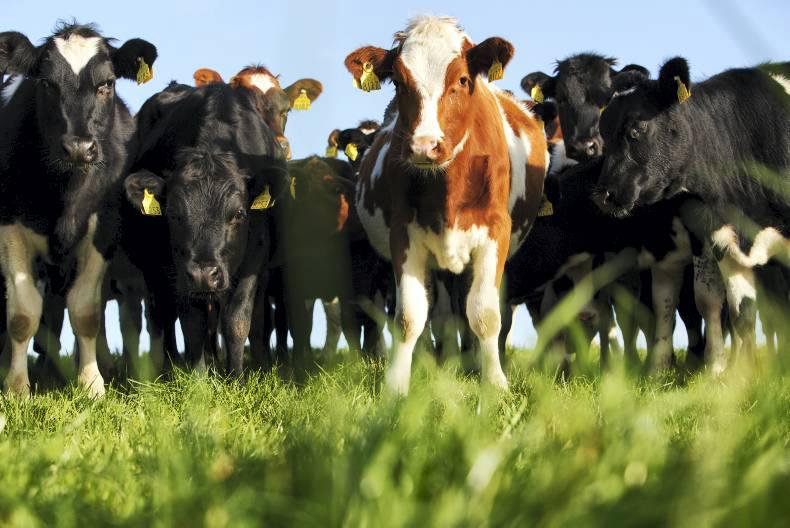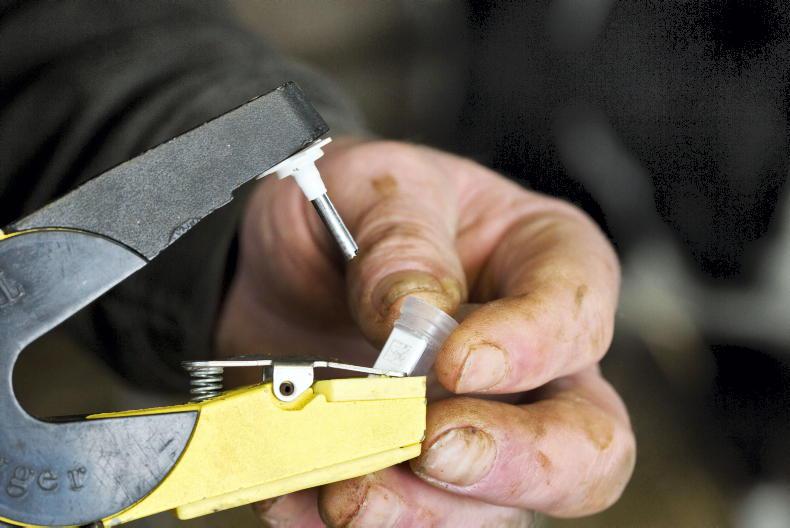Farmers participating in the latest Knowledge Transfer Programme (KTP) need to complete a herd health plan in year one. It must be completed on the Department of Agriculture’s Animal Health Computer System. While the computer system is not yet up and running, vets have already visited discussion groups and farmers and have recorded details on paper, which will be uploaded at a later date.
The targeted focus areas for dairy and beef herds are:
Calf health and biosecurity.Parasite control.Lameness.Fertility. For the sheep sector, ‘‘flock health and production’’ replaces the first measure.
For dairy farmers, the CellCheck workshop must be completed within 18 months of entering the programme from 30 June 2016 to December 2017. Also, the Carbon Navigator must be completed in year one on the Bord Bia website. The participant and a KTP facilitator must complete this together.
The farm health and safety element of the Farm Improvement Plan (FIP) must be completed in year one of the programme on a Farm Work Efficiency Worksheet. Again, the participant and KTP facilitator must complete this together.
Calf health
The calf health and biosecurity measure looks at the challenges for newborn calves on livestock farms.
Parasite control
The parasite control measure looks at the dosing and parasite control measures in place on the farm and possible ways to improve it.
The strategy for the year ahead is outlined and also the challenge for stock entering at different times through the year.
Lameness
This section deals with the amount of lameness already happening in the herd and what control plan is in place. The vet will discuss the various types of lameness and how it can be prevented and treated.
Biosecurity
The introduction of disease from outside farms is a big threat to many farms. Bringing disease from one farm to the other is the last thing you want to do. Visitors coming on to the farm during the period when new calves and lambs are born is a critical time when many sicknesses are transferred. The fewer visitors at this time of the year, the better. Establishing the right boundary fence to prevent contact across ditches, etc, is also important.
The KTP herd health plan should be viewed as an opportunity to establish and implement a herd health plan that delivers better profit to the farm. It should also allow for management of scarce resources which at this time of the year is usually labour.
Read more
Special focus: animal health 2017
Farmers participating in the latest Knowledge Transfer Programme (KTP) need to complete a herd health plan in year one. It must be completed on the Department of Agriculture’s Animal Health Computer System. While the computer system is not yet up and running, vets have already visited discussion groups and farmers and have recorded details on paper, which will be uploaded at a later date.
The targeted focus areas for dairy and beef herds are:
Calf health and biosecurity.Parasite control.Lameness.Fertility. For the sheep sector, ‘‘flock health and production’’ replaces the first measure.
For dairy farmers, the CellCheck workshop must be completed within 18 months of entering the programme from 30 June 2016 to December 2017. Also, the Carbon Navigator must be completed in year one on the Bord Bia website. The participant and a KTP facilitator must complete this together.
The farm health and safety element of the Farm Improvement Plan (FIP) must be completed in year one of the programme on a Farm Work Efficiency Worksheet. Again, the participant and KTP facilitator must complete this together.
Calf health
The calf health and biosecurity measure looks at the challenges for newborn calves on livestock farms.
Parasite control
The parasite control measure looks at the dosing and parasite control measures in place on the farm and possible ways to improve it.
The strategy for the year ahead is outlined and also the challenge for stock entering at different times through the year.
Lameness
This section deals with the amount of lameness already happening in the herd and what control plan is in place. The vet will discuss the various types of lameness and how it can be prevented and treated.
Biosecurity
The introduction of disease from outside farms is a big threat to many farms. Bringing disease from one farm to the other is the last thing you want to do. Visitors coming on to the farm during the period when new calves and lambs are born is a critical time when many sicknesses are transferred. The fewer visitors at this time of the year, the better. Establishing the right boundary fence to prevent contact across ditches, etc, is also important.
The KTP herd health plan should be viewed as an opportunity to establish and implement a herd health plan that delivers better profit to the farm. It should also allow for management of scarce resources which at this time of the year is usually labour.
Read more
Special focus: animal health 2017









SHARING OPTIONS